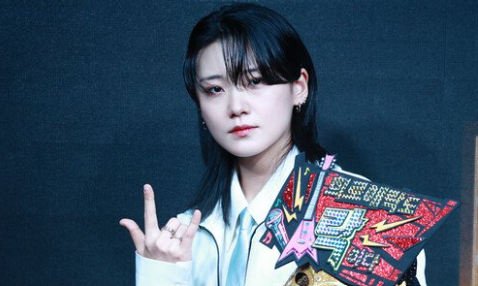South Korea’s rapid rise as a cultural superpower, exporting influential entertainment globally, is no accident but a product of deliberate strategy and adaptation, according to the country’s top cultural official. In an interview with Newsweek at the grand opening of Korea Center New York, South Korean Minister of Culture, Sports and Tourism Yu In-Chon discussed how the nation has harnessed its unique challenges and cultural dynamics to fuel its international success.
Known as the “K-Wave” or Hallyu, this phenomenon began taking shape in the late 1990s and has since brought South Korean culture to the forefront of global media. From the international music success of groups like BTS to cinematic achievements such as the Oscar-winning film “Parasite,” South Korea has made a significant mark on the world stage. This success comes despite the ongoing military tensions with North Korea, which Yu describes not as a deterrent but as an unlikely muse for creativity and cultural expression.
Photos from media showcase of ′NAYEON′
The K-wave as a cultural phenomenon is a channel through which Korea and the world communicate….
Read more 👉 https://t.co/JpU8tUeYQX
— Kevin Pietersen (@KevinPiete62852) June 17, 2024
Yu attributes part of this global cultural resonance to the diverse and dynamic nature of South Korean creativity, which continually evolves and integrates various influences rather than adhering to a repetitive formula. He emphasized that the adaptability and innovative spirit of South Korean culture have been key in distinguishing it from its neighbors, China and Japan.
Photos from media showcase of YUN MIN
The K-wave as a cultural phenomenon is a channel through which Korea and the world communicate….
Read more ➡️ https://t.co/R3wWXf4N9q pic.twitter.com/DuwGaf7MaZ
— Gabrielle Leland (@GabrielleL17555) June 12, 2024
The minister also highlighted how South Korea’s historical context, including its rapid development and the societal shifts that followed, have influenced its cultural output. Iconic films and TV shows often draw on themes of conflict and reconciliation, which resonate both domestically and internationally. Moreover, South Korea has utilized its cultural products as diplomatic tools, promoting peace and understanding, such as during the 2018 Winter Olympics in Pyeongchang, which catalyzed dialogue between the North and South.
Photos from 2024 Festa: ARMY Event for BTS′ Jin
The K-wave as a cultural phenomenon is a channel through which Korea and the world communicate….
Read more ➡️ https://t.co/OWhi9W7t86
#bts pic.twitter.com/aFlxVUYoiM— Mira Raphael (@MiraRaphae41024) June 13, 2024
Furthermore, Yu discussed the importance of maintaining a balance between preserving traditional Korean values and embracing modern influences. He pointed out that while globalization poses challenges to cultural preservation, it also offers opportunities to innovate and redefine South Korean culture for the global audience.
Looking ahead, Yu expressed confidence in the ongoing vitality of the K-Wave, supported by a strategic approach to nurturing and exporting culture. The government, along with the private sector, is actively preparing to adapt to rapid changes and emerging global trends, ensuring that South Korea remains at the cutting edge of cultural production.
Key Points:
i. South Korea’s cultural success, known as the K-Wave, is driven by a strategic blend of traditional and modern influences, according to Minister Yu In-Chon.
ii. Despite geopolitical tensions with North Korea, the conflict has spurred rather than hindered creative expression within South Korea.
iii.The K-Wave has been distinguished by its diversity and dynamism, allowing it to stand out against the larger cultural outputs of China and Japan.
iv. Historical challenges and rapid modernization have deeply influenced South Korean cultural products, making them appealing both domestically and internationally.
v. Looking forward, South Korea aims to continue leading global cultural trends by adapting to changes and integrating various global influences into its cultural output.
Kirk Volo – Reprinted with permission of Whatfinger News



